Part I of “Driving Home: Surviving the Housing Crisis.” Lee esta historia en español.

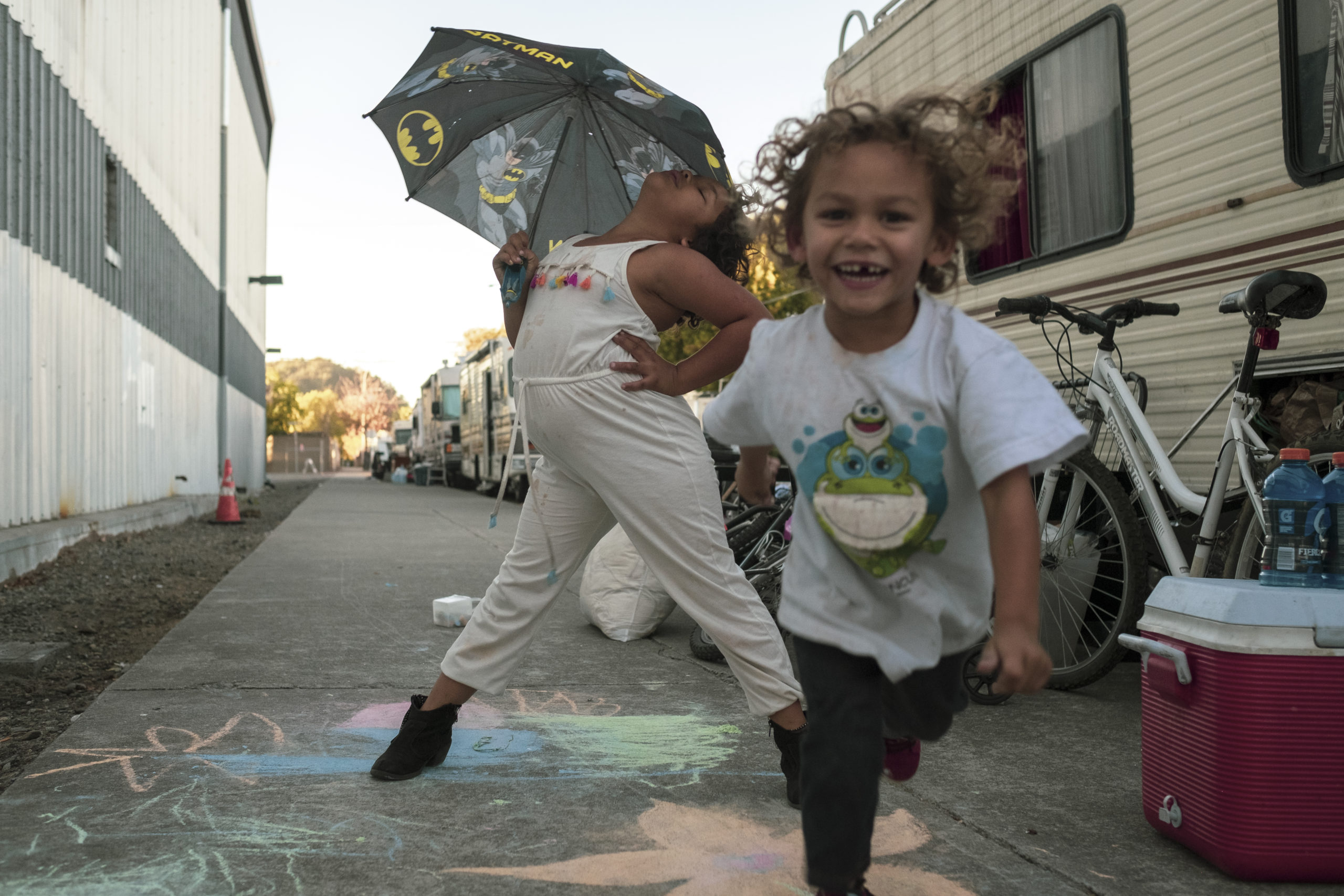
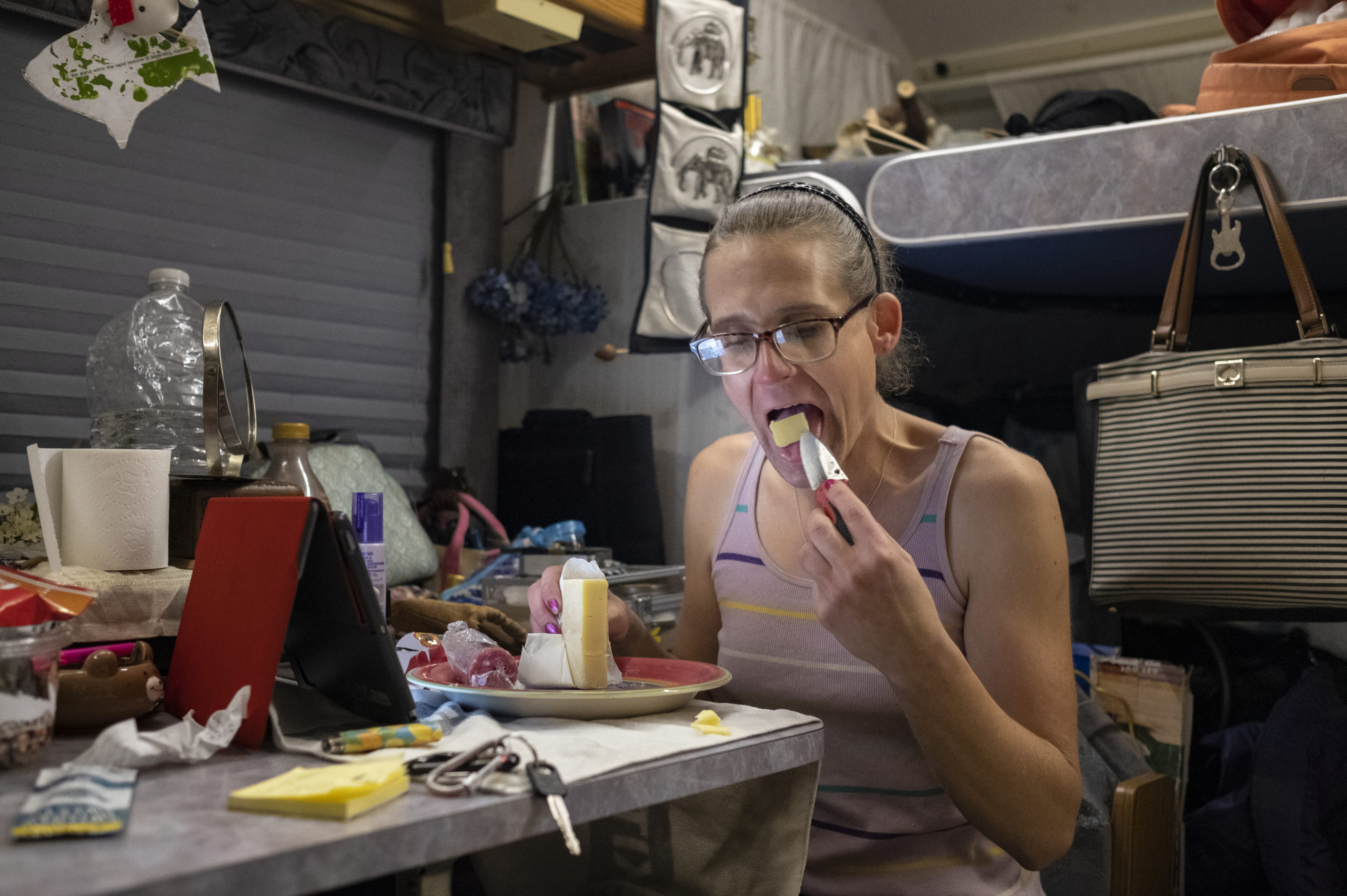
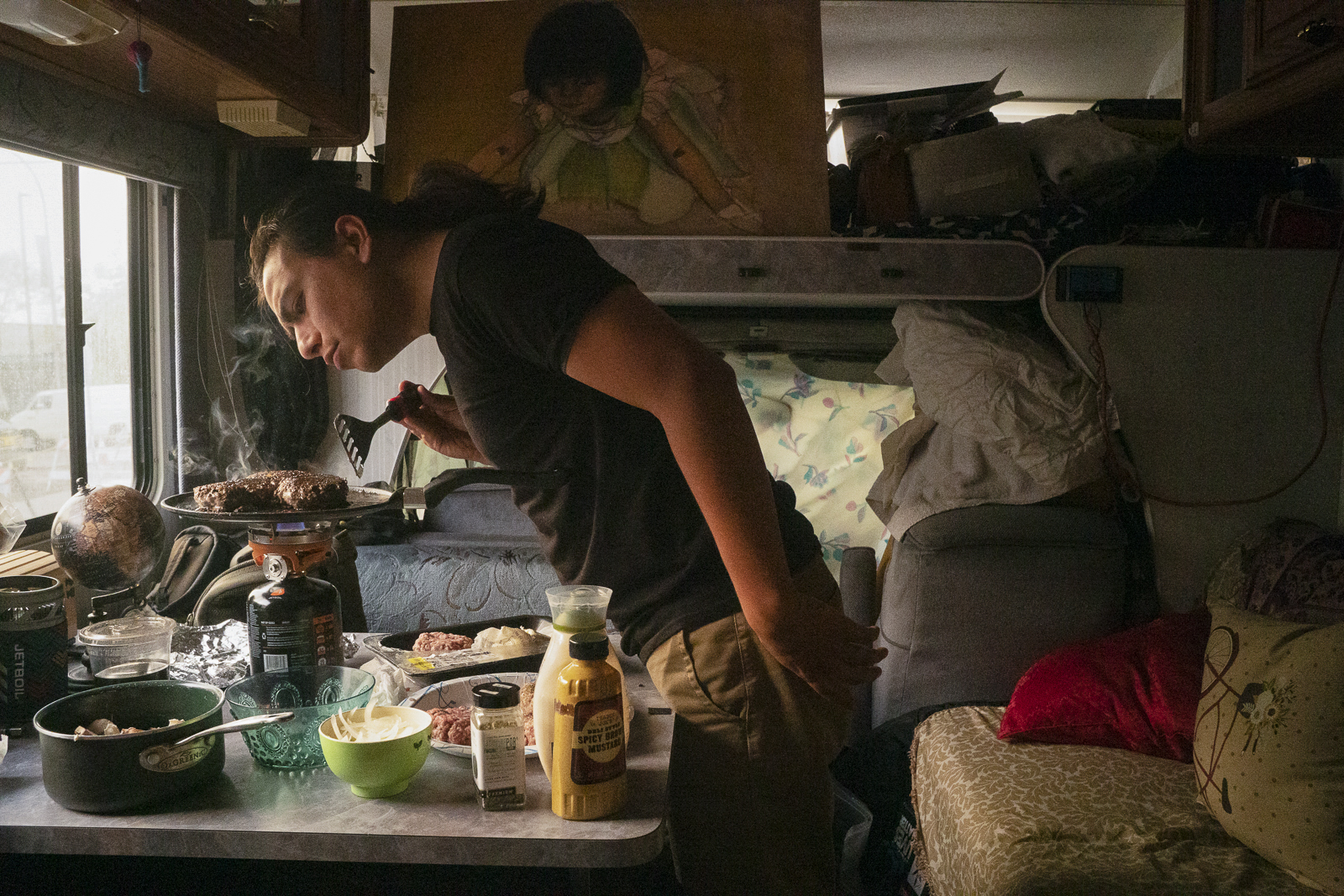

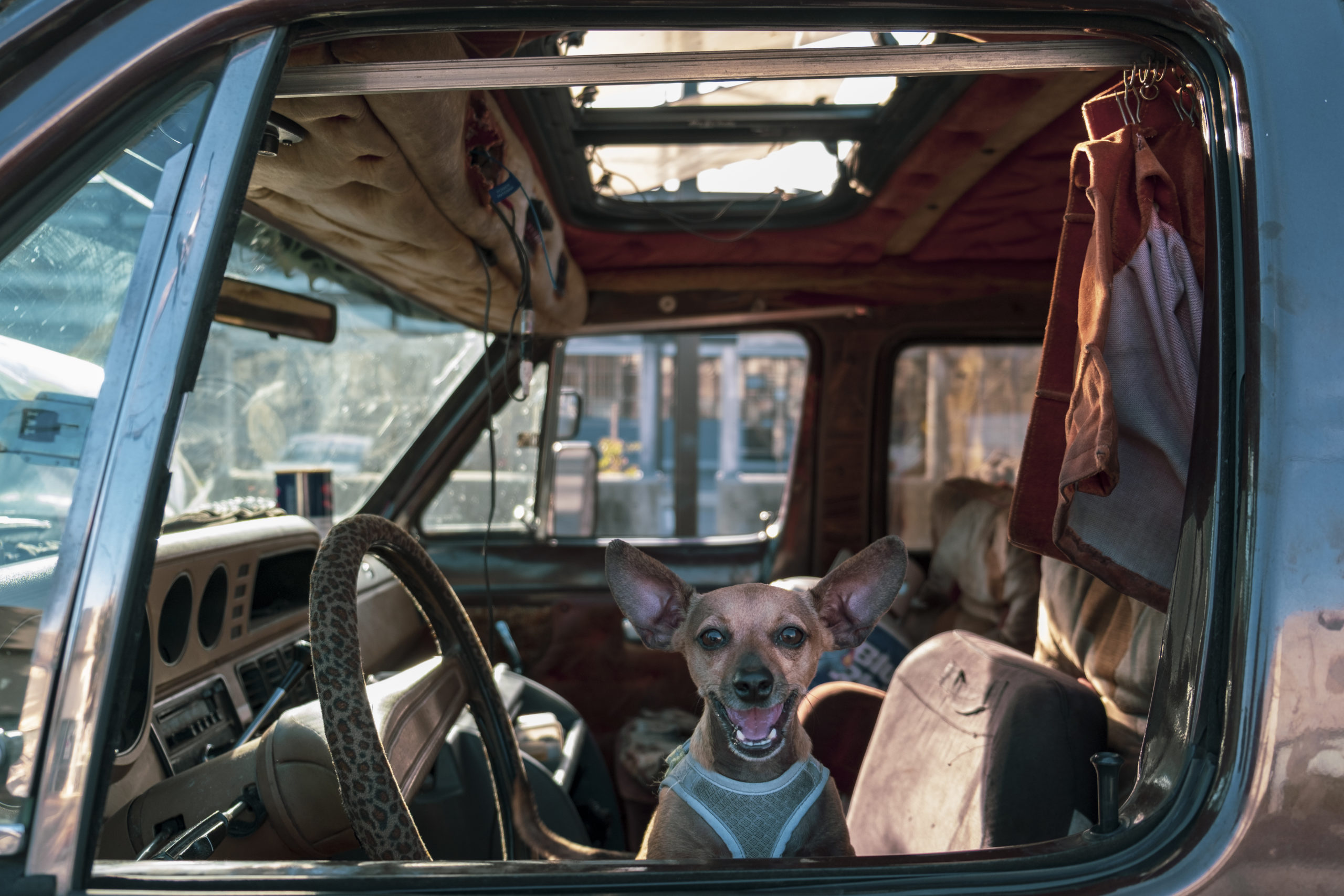

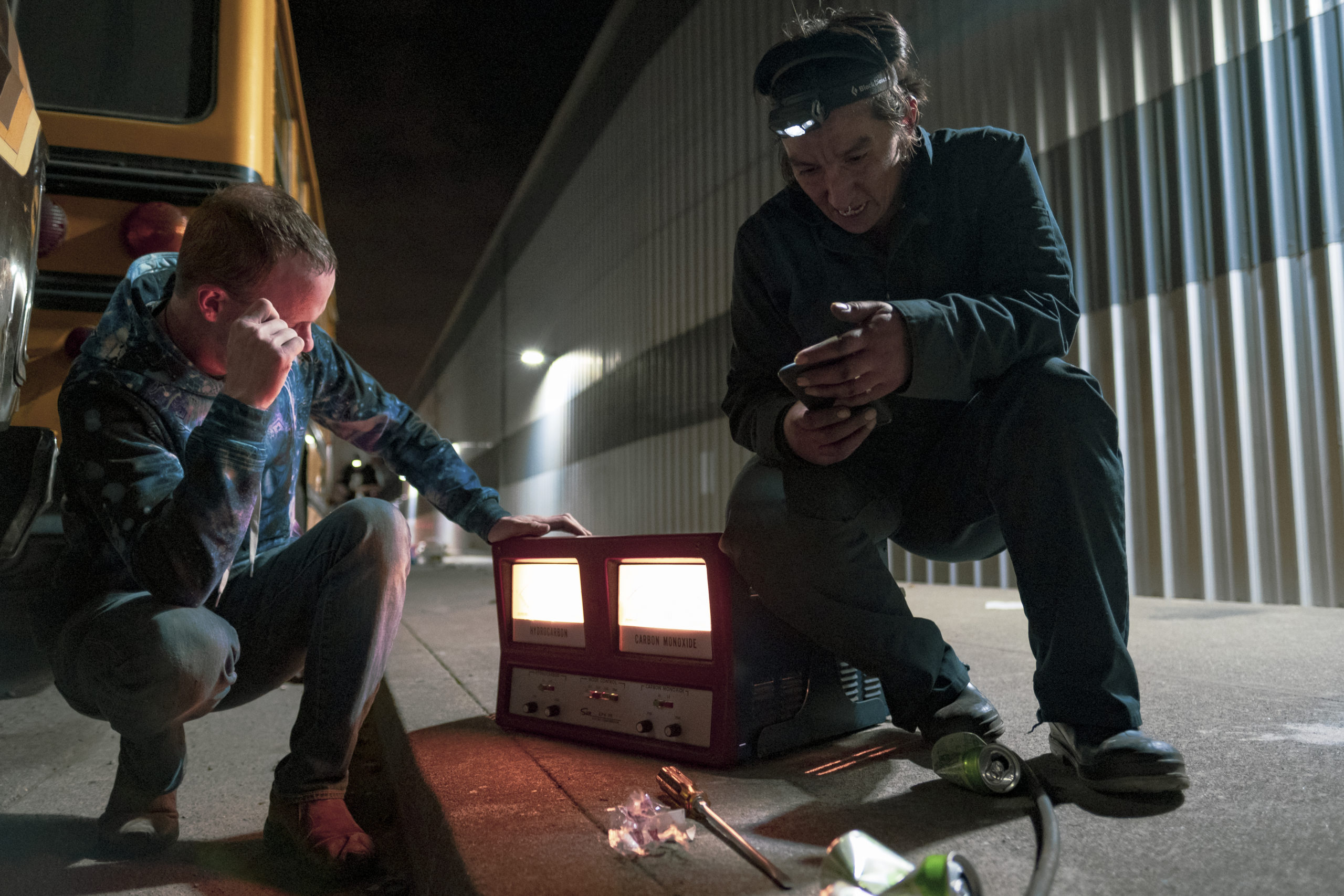
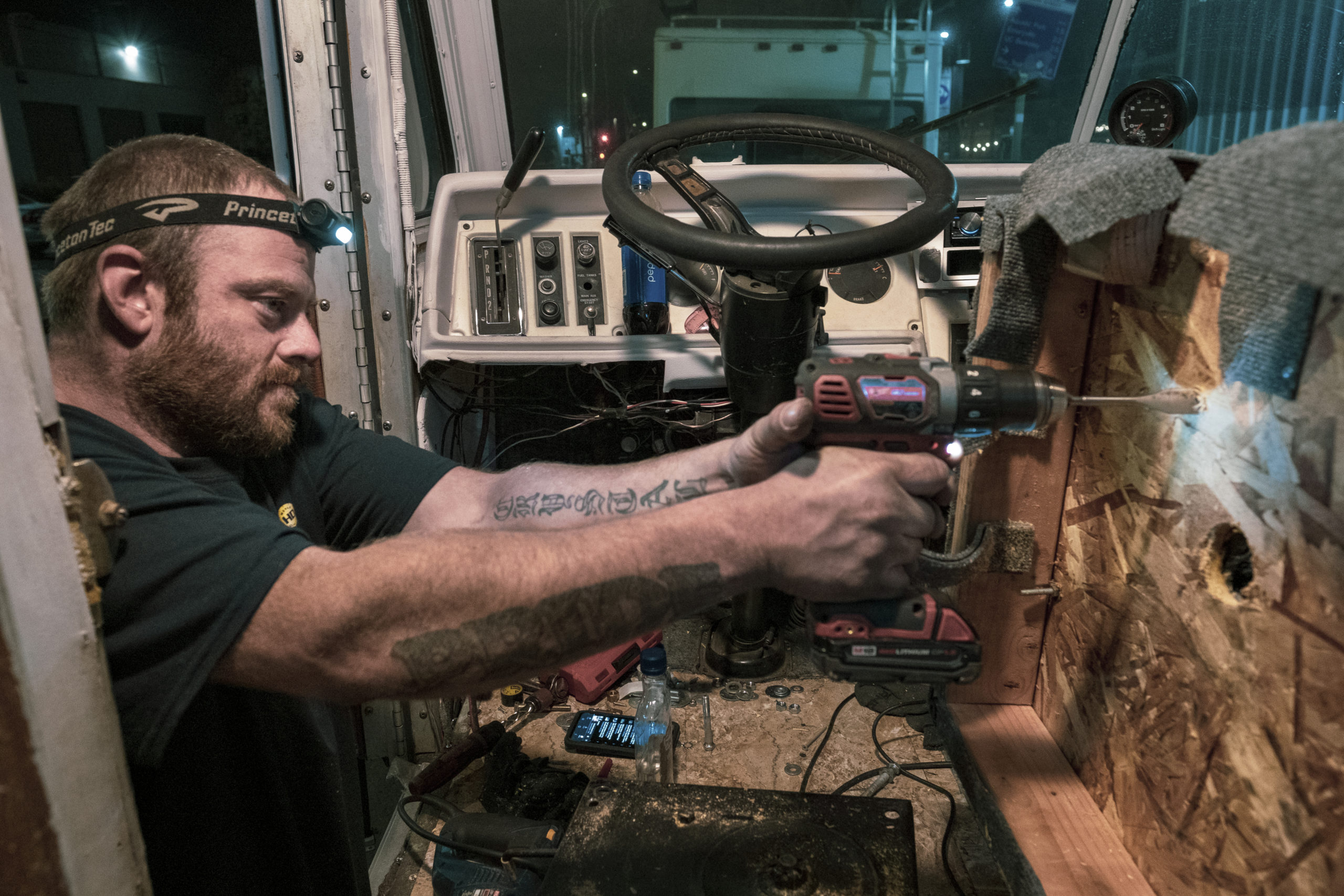
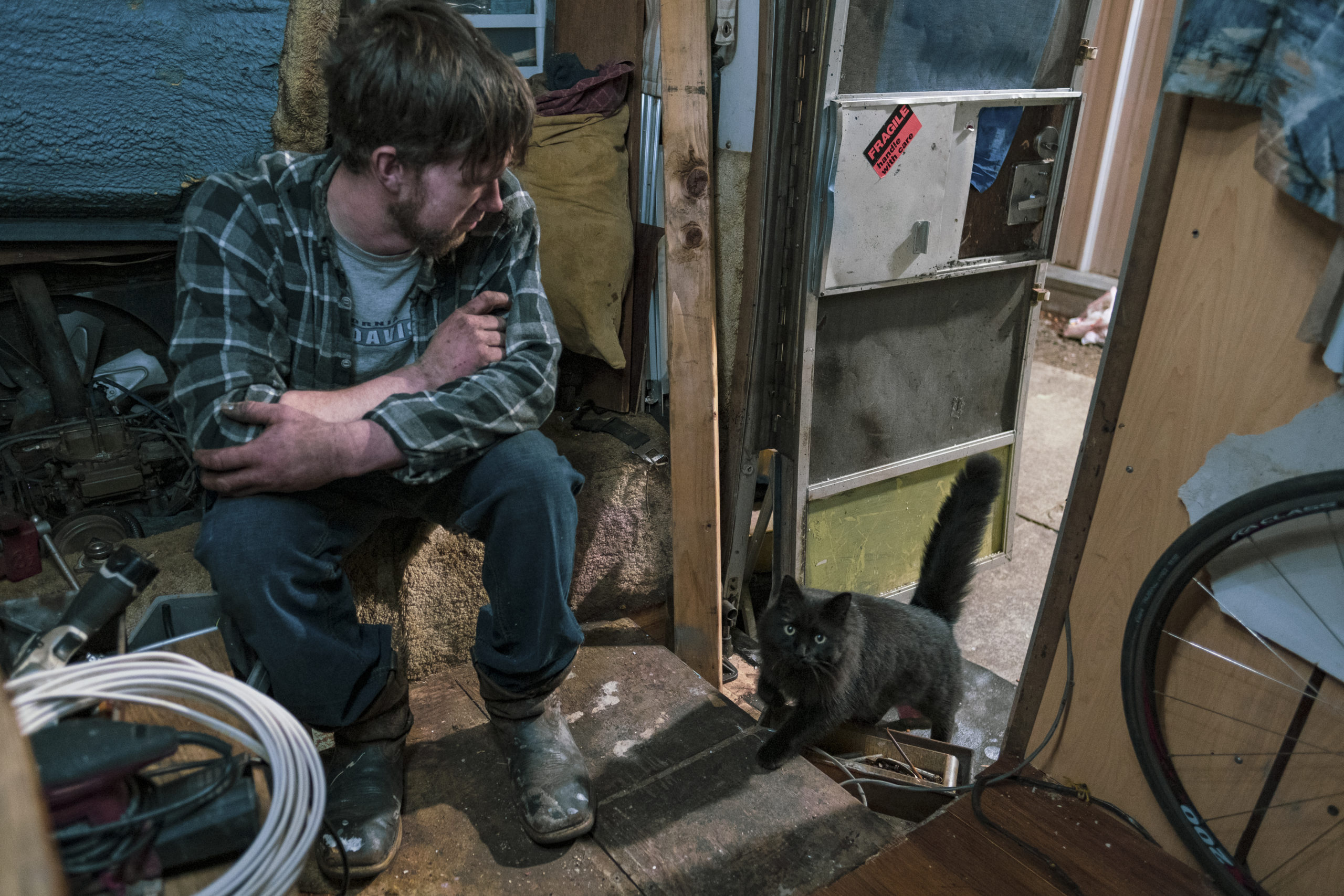
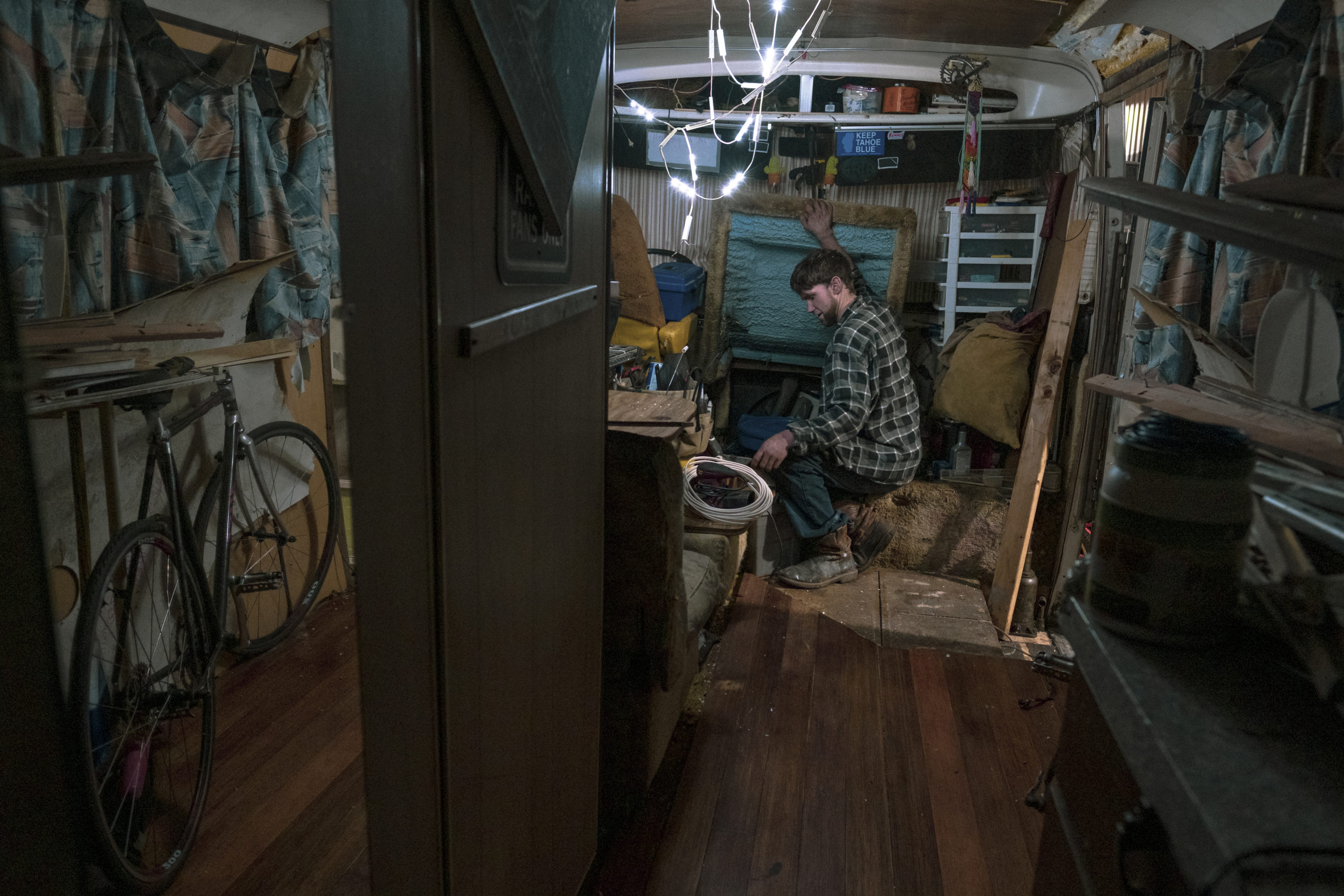
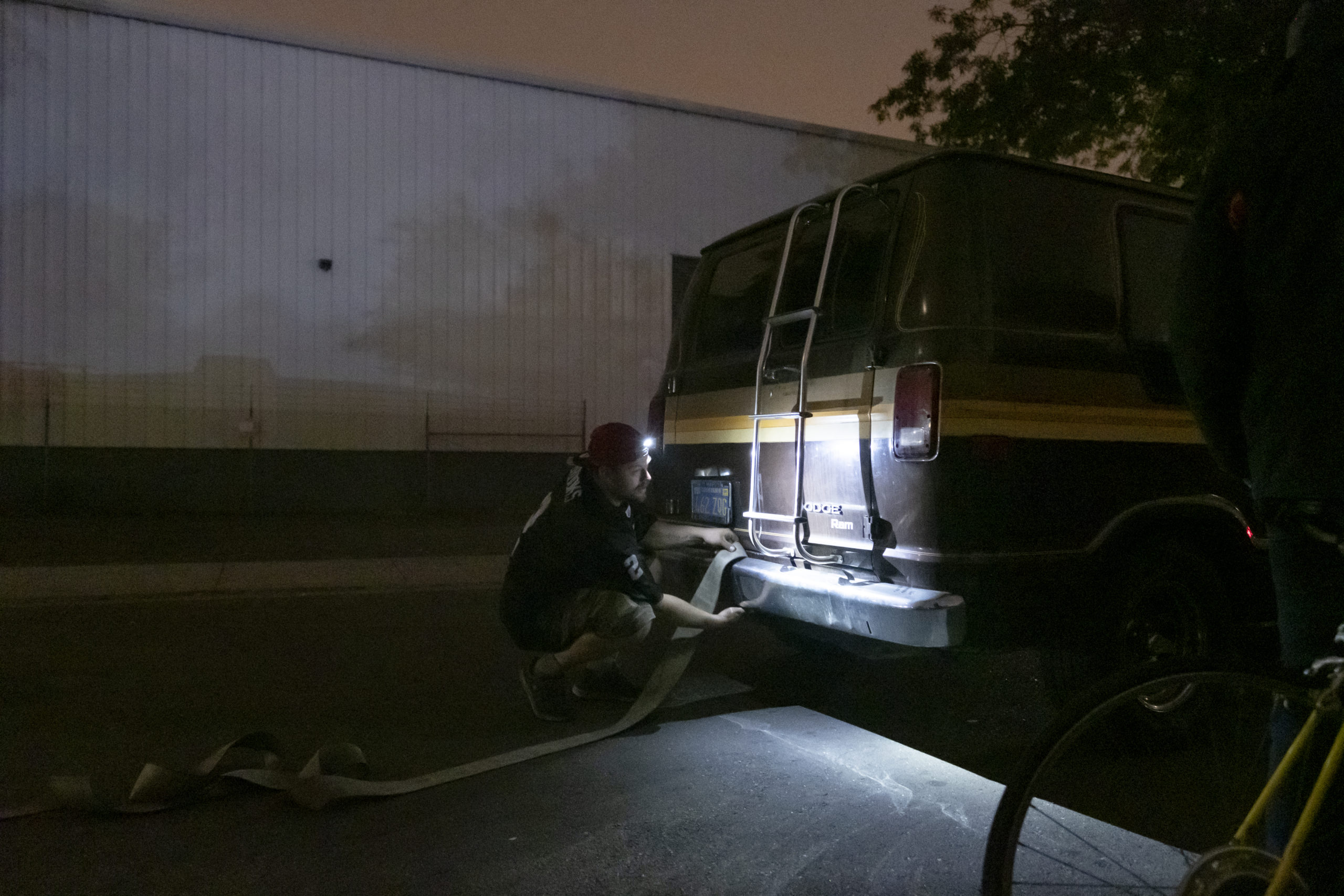

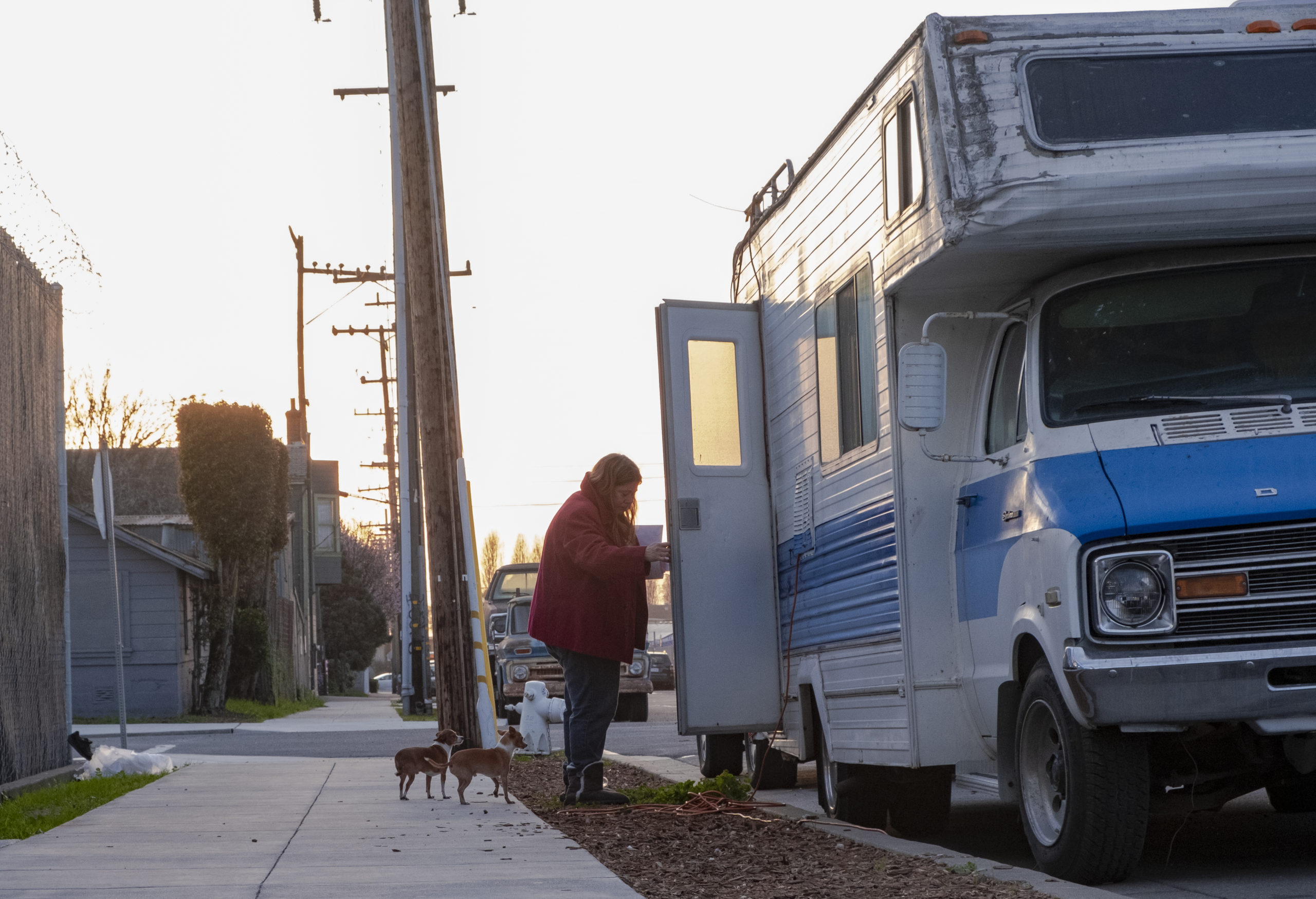
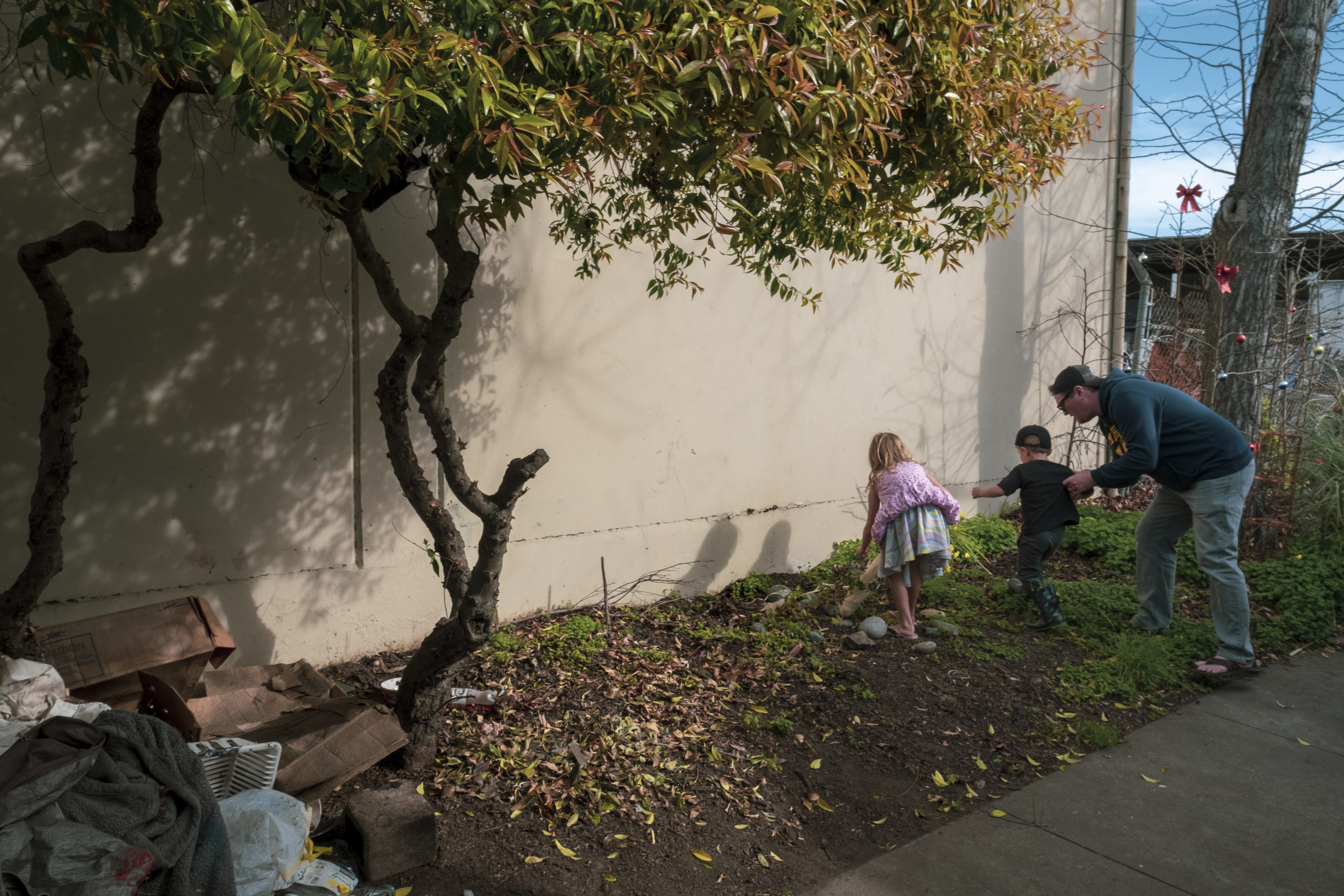
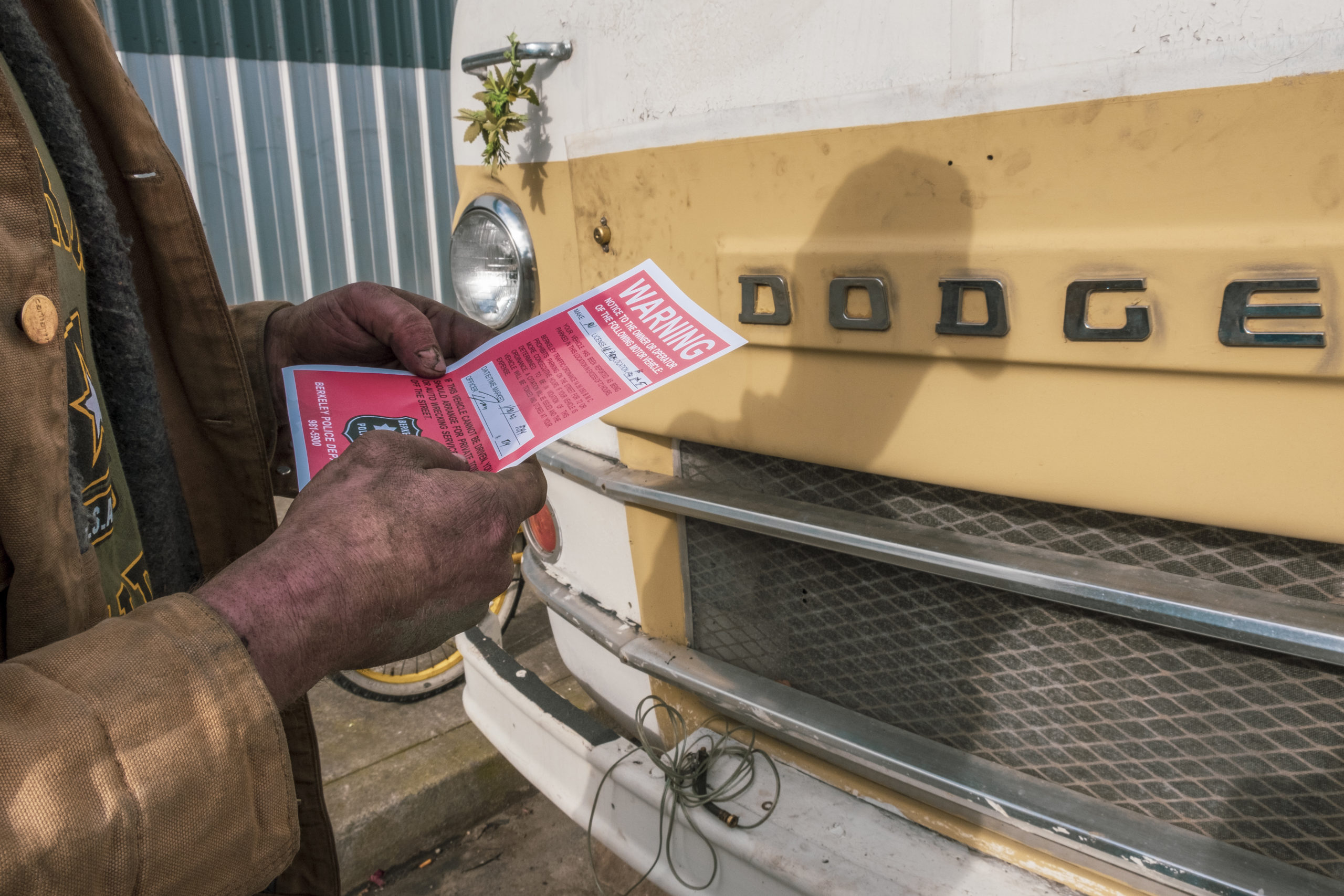
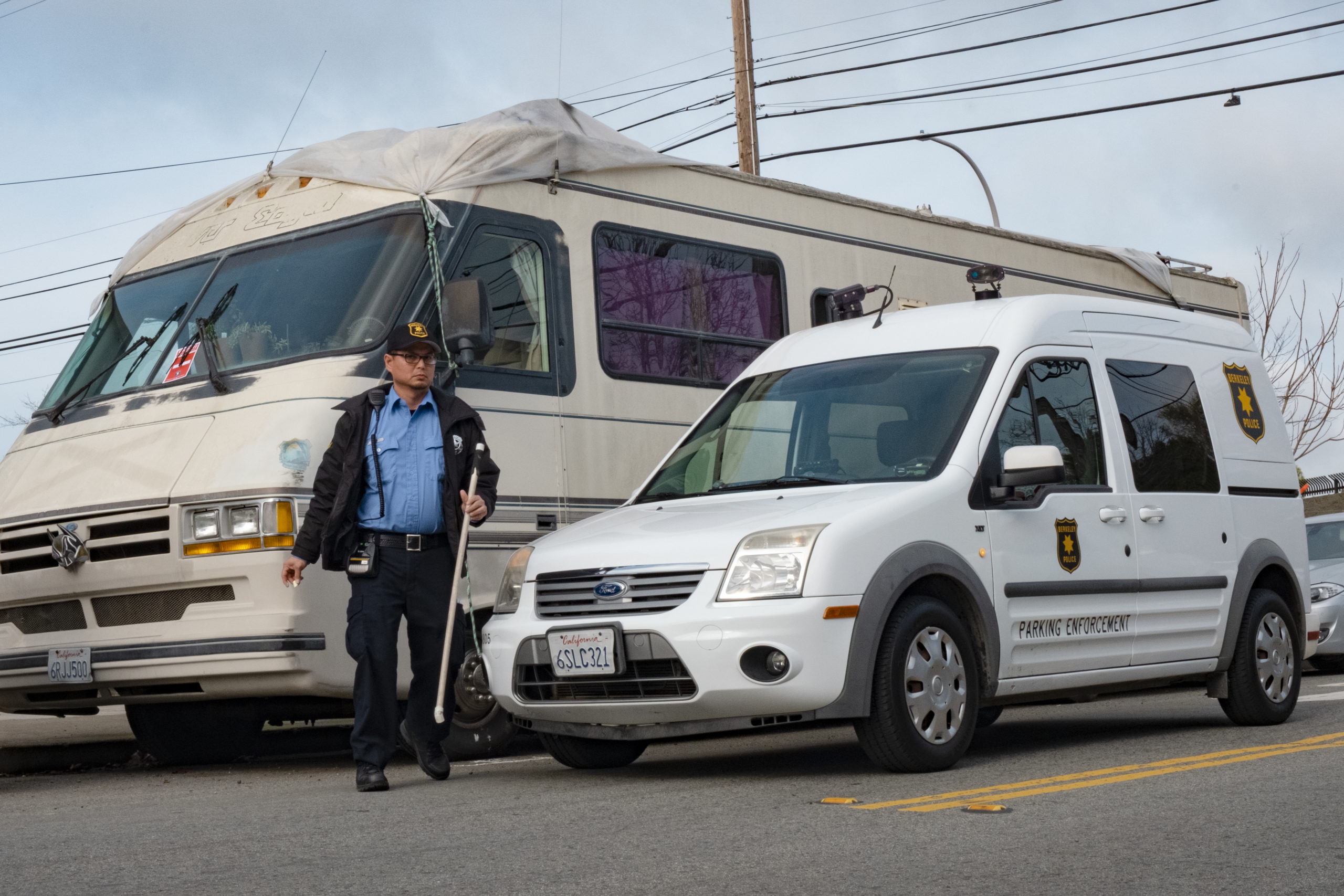
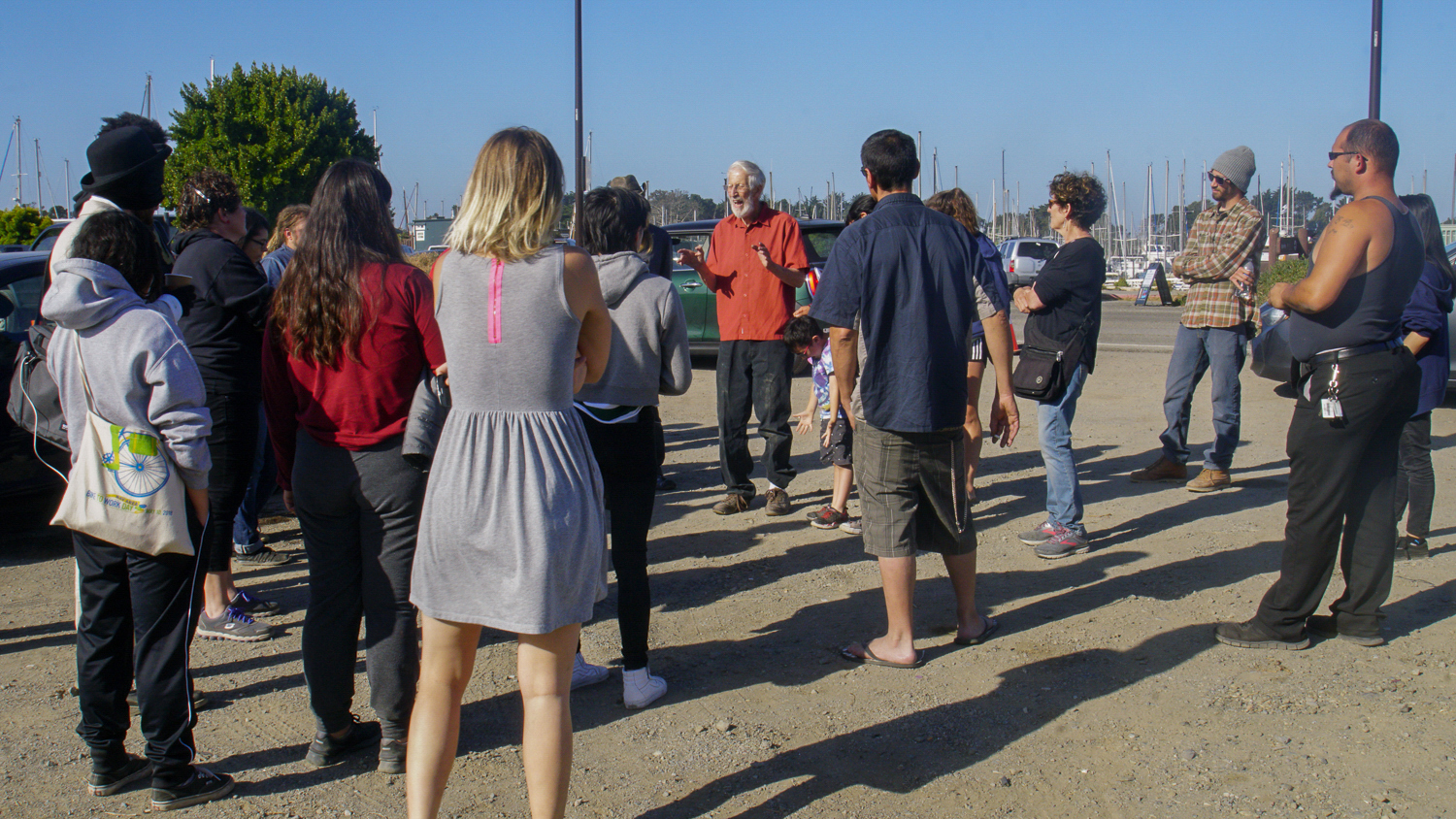
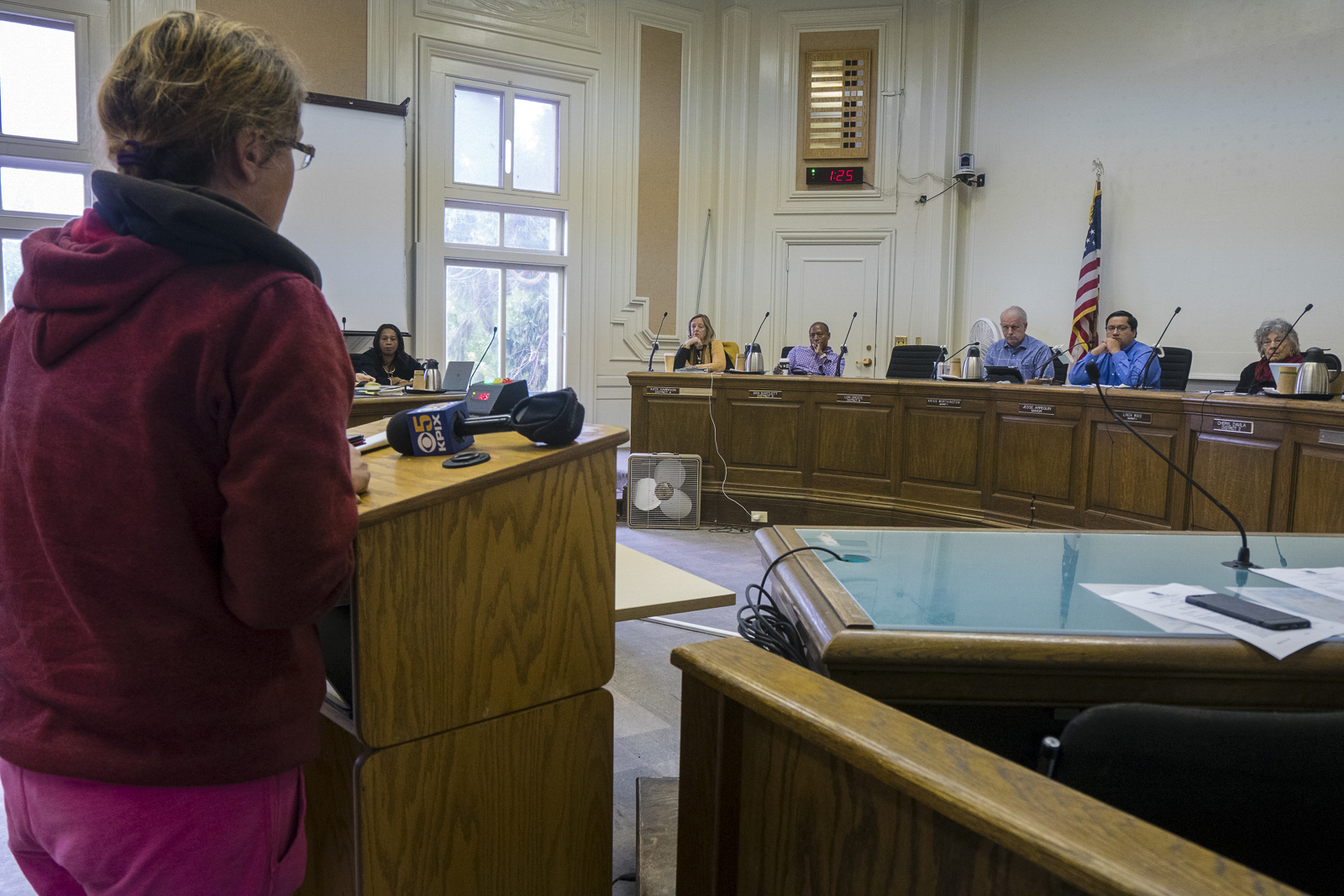
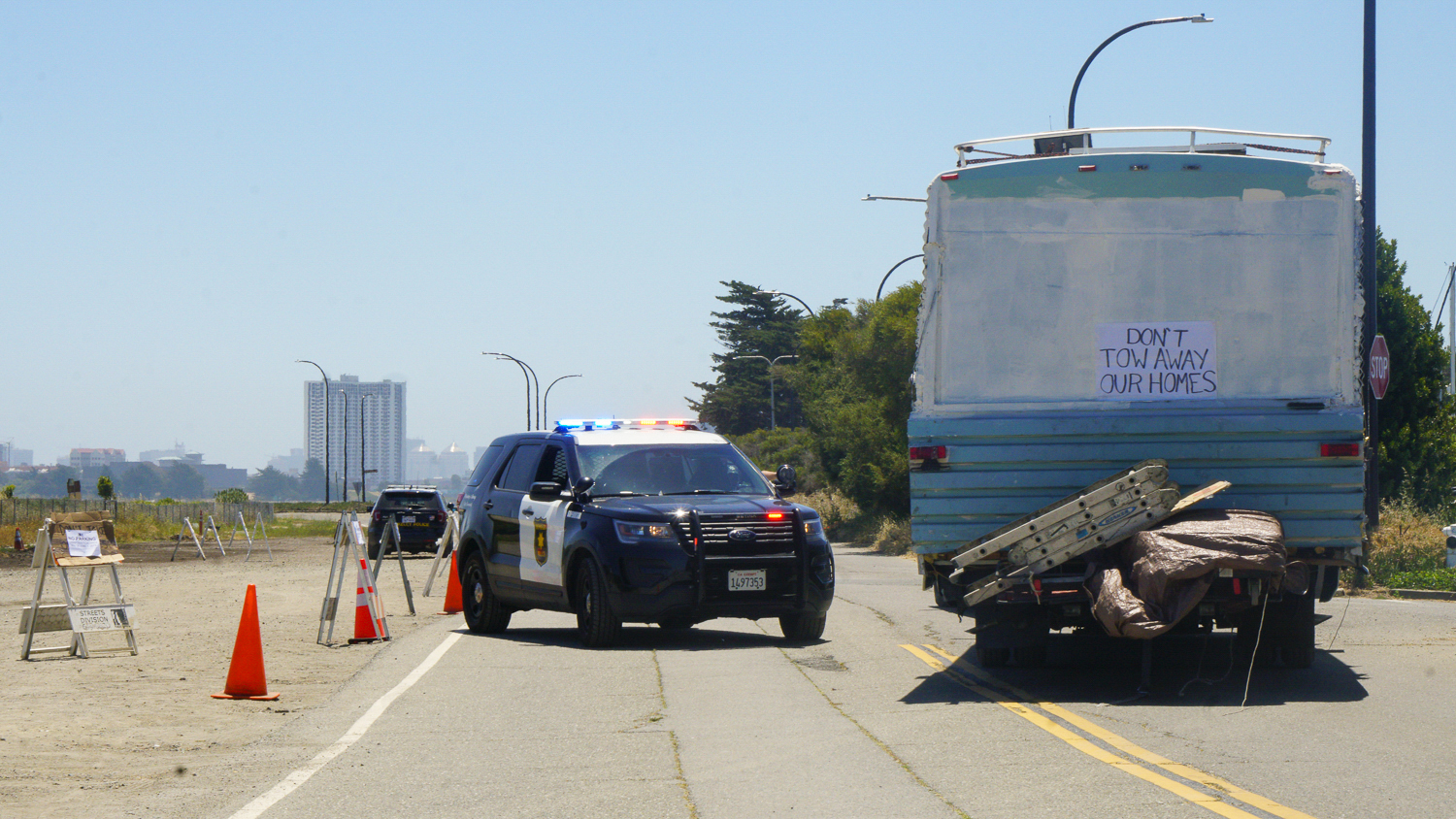
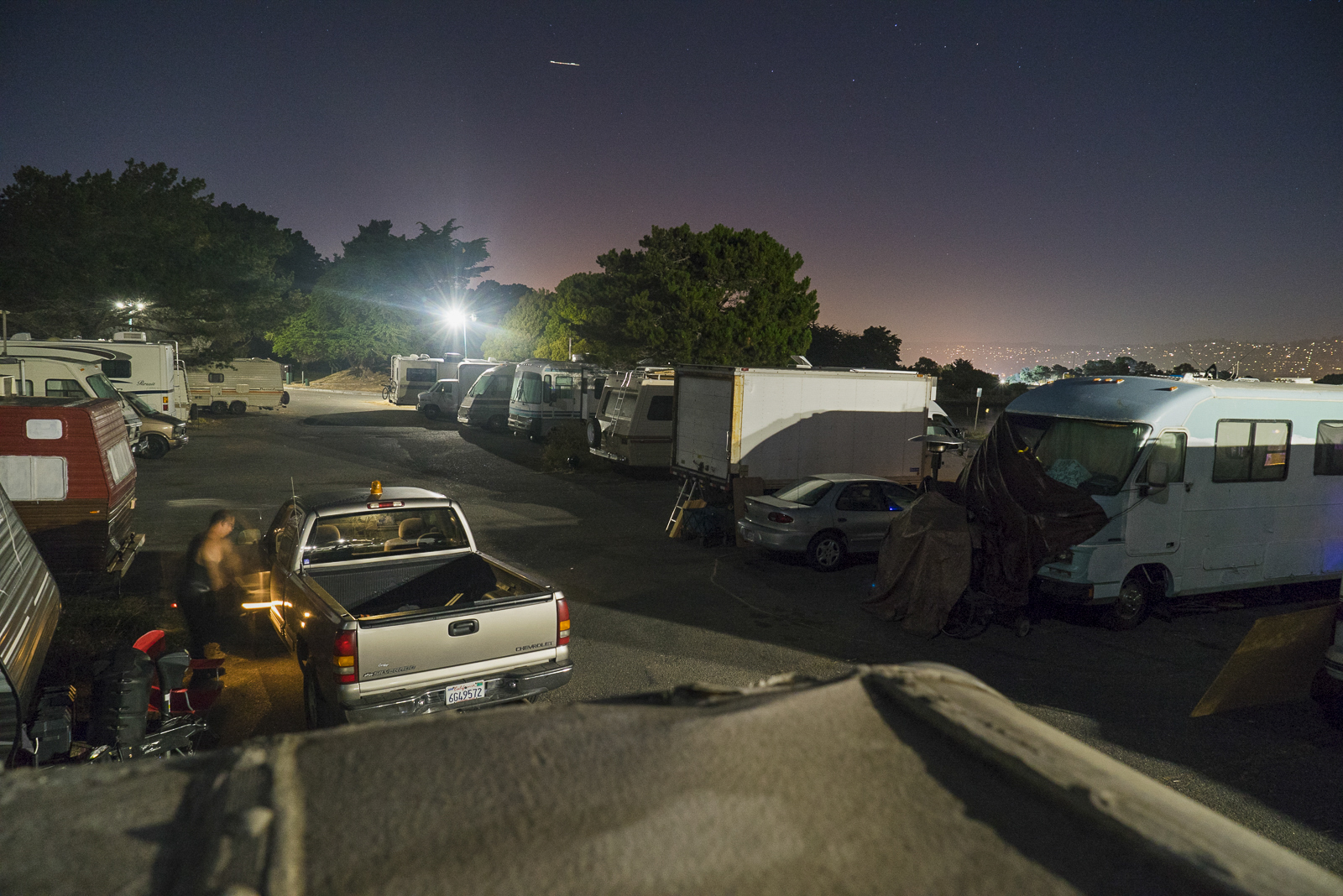
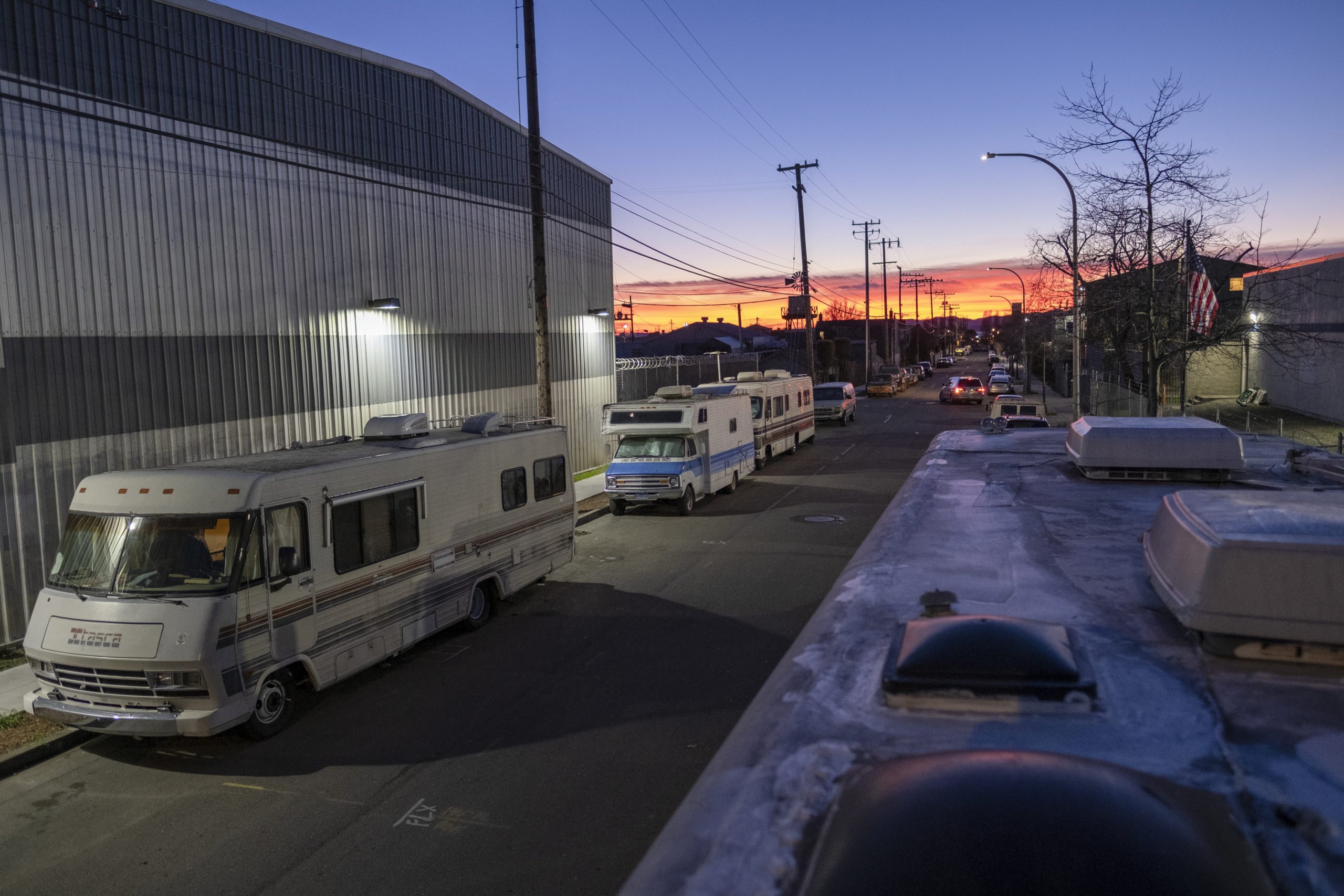
Explore images by clicking through the viewer above, or see the entire photo essay here on a single page.
Editor’s note: While reporting this story, Yesica Prado was a member of the vehicle community Friends on Wheels.
In response to an increase in the use of recreational vehicles, cars and trucks as shelter, cities throughout the Bay Area are enacting policies that sometimes support but often restrict the lives of unhoused residents who make their homes on four or more wheels.
In one high-profile example, Berkeley’s City Council in February outlawed overnight parking on city streets for RVs and campers, effectively breaking up a community of vehicle dwellers that had formed over many years.
The group, which calls itself Friends on Wheels, once represented the largest assembly of vehicle residents in the city. They came together out of need, cooperating to support each other as they faced common challenges. They shared resources and fostered a safe environment for their families — often breaking municipal laws in the process. Berkeley’s new regulations have dispersed group members across the city, where they continue to face the same obstacles, but on their own.
READ MORE:
Coronavirus Resource Guide for Vehicle Dwellers in San Francisco and Berkeley
In January 2019 the Berkeley point-in-time count, a census of the city’s homeless residents conducted every other year, found for the first time that people living in vehicles made up the largest portion of the city’s unhoused population — 29%. In 2019, the homeless census found 161 residents living in recreational vehicles, up from 59 two years earlier, while 157 people were living in vans and cars, up from 133. The total homeless population increased over those two years to 1,108 from 834.
A city report this March suggested that the actual number of unhoused people could be twice as high, putting Berkeley’s homeless population closer to 2,000 people.
In a region where the cost of living has spiraled upward in the last decade, some who find themselves without housing opt for living in vehicles. Many view it as a temporary fix — an affordable shelter or intermediate stop they hope will put them on a path to stable, permanent housing.
Becoming Friends on Wheels
Even before the COVID-19 pandemic swept through the region, making life especially perilous for thousands of homeless people, living in a vehicle on busy urban streets came with many hazards. Parking too close to businesses and residences increases the likelihood of complaints, drawing the attention of city staff and police. The threat of parking tickets or being towed is ever present.
That might explain why the Berkeley Marina, a remote public space on the city’s San Francisco Bay waterfront, has long been a refuge for vehicle dwellers. Foot traffic is sparse, and parking is ample. Overnight parking is prohibited, but enforcement historically has been lax.
“Before we came to the Berkeley Marina, we were just driving around parking on a different street every night,” said Jennifer Ransbottom, a member of Friends on Wheels who lives with her husband and three children in an RV.
“You always had to be strategic in where we parked,” she said. “Is it a busy street? Could somebody possibly sideswipe us or run into us? Are the police going to trip off while we are here? Can we run our generator?”
The marina’s seclusion provided safety, but also challenges. There are few options within walking distance for inexpensive, healthful food, and a dearth of dumpsters for those who prefer to scavenge for leftovers.
In early 2018, some of the marina’s vehicle dwellers began sharing food. Owners of RVs with working refrigerators stored groceries for others so it would keep longer and save them money. People also shared rations from the local food bank at Sacramento and Cedar streets.
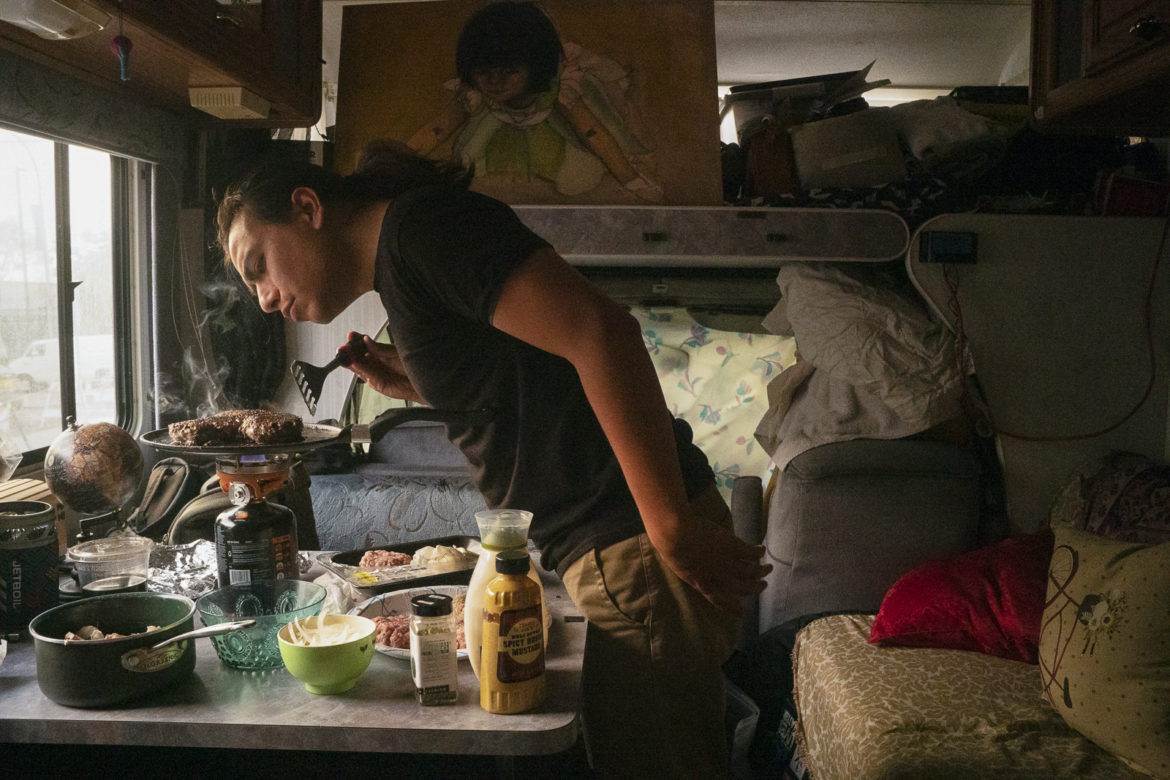
Yesica Prado / San Francisco Public Press and CatchLight Local
Christian Torres cooks hamburgers on a camping stove. Torres lives inside a Ford E150 white cargo van. He is a photographer from the town of Sanger, near Fresno. He brought his van to the Bay Area, searching for creative opportunities. His daily routine: make breakfast, hit the gym, shower, commute around the city for food and linger at coffee shops or libraries to charge battery packs and electronics for the day.From this informal collaboration, the Friends on Wheels community coalesced. At its height, the group consisted of more than 50 people living in more than 30 vehicles. They taught each other skills for surviving on the streets, such as how to install solar panels, waterproof vehicle rooftops, build laundry washbasins and repair bicycles.
The community consisted of families, students, gig workers and service-industry workers. Many were disabled and elderly people, having moved into vehicles when the only other option for independent living outdoors was tents. A multitude of forces had displaced them from housing: job losses, rent hikes, foreclosures, evictions, deaths in the family, natural disasters, tuition costs and sudden illnesses.
Strength in numbers
In the early days, Friends on Wheels typically assembled along Marina Boulevard. Nearby restrooms with showers solved a major problem inherent to street life: maintaining good hygiene.
The restrooms had power outlets, so they could siphon electricity. They ran extension cords to power portable heaters and survive colder seasons in poorly insulated vehicles. The setup kept batteries, phones and other essential devices charged.
But complaints about the group accumulated. On Memorial Day 2018, Berkeley police forced them out of the marina. About two-dozen activists protested, some holding signs that read “do not evict us” and “do not tow my home.”
As police proceeded with the eviction, Osha Neumann, a civil rights attorney, asked Lt. Kevin Schofield where the group could go. Neumann said the officer replied: “It’s not our job to know that. But they have to go.”
Trying to stick together, the group moved into the nearby parking lot of Hs Lordships — a former marina restaurant that had shut down — because they thought staying within the boundaries of the marina was safer than parking on bustling city streets. Parents said they did not want their children living along roadways.
Ransbottom recalled another parent’s strenuous objection to returning to the city’s urban grid: “He was completely adamant. ‘No, I don’t want to go curbside with my kids.’ I was like, ‘What the hell is curbside? What does it matter? We are homeless.’ But it’s a lot harder to live curbside with your kids. You share your front doorstep with whoever chooses to walk up and down that street.”
Even though they didn’t arrive there by choice, the restaurant parking lot gave them an even greater ability to control and optimize their environment — at least for a little while.
An idyllic summer
On a windy summer night in 2018, recreational vehicles, box trucks, vans and cars lined up all in a makeshift circle at the Hs Lordships lot. It was just after 11 p.m. and Chris Bockover’s children had just gone to sleep in their traveling trailer. Outside, Bockover heated up his truck’s engine.
Stepping outside the pickup, Bockover buttoned his white collared shirt, preparing for another overnight shift as a valet parking manager in San Francisco.
As he drove away, he spoke briefly with Ransbottom’s husband, Frank Calloway, who was watching over the premises. Calloway reassured Bockover that the kids would be safe while he was at work.
For security, Friends on Wheels members took turns keeping watch over the lot’s two entrances and alerted others if they spotted anything concerning: possible thieves, vandals, drunk drivers, new vehicle dwellers, city staff or police.
The community patrol gave parents a sense of safety, so they let children roam, play together and share toys. Parents could run errands and work regular shifts because neighbors were babysitting.
“We were all in a circle and we had the area in between the RVs for the kids to run around and play. I loved it, everyone looking out for everybody,” Ransbottom said. “We had a little area where we sat and barbecued every night. It was nice. It was a lot easier that way.”
And it was easy to keep vehicles operational — often a major challenge for unhoused residents. In Berkeley, it is illegal to repair vehicles on public roads except during an emergency, and violators can be fined or towed. The same rules applied at the restaurant parking lot, but police and parking control officers generally did not issue tickets, so vehicle repairs could happen at any time.
Vehicle neighbors cooked on grills out in the open and ate together. They discarded garbage in dumpsters that were open all day. In the evenings, they picked up trash and recyclables that the wind and park visitors had brought into the lot.
Perhaps the most striking aspect of the community was how members formally organized themselves. Friends on Wheels drew inspiration from another group called Here/There Community Camp to craft rules they all agreed to follow. They included:
- Keep the area surrounding the vehicle cleared of debris.
- Maintain a septic tank in working order. No dumping human or animal waste in the vicinity.
- Guests can visit between 8 a.m. and 8 p.m. Up to seven overnight stays allowed per month.
- No drug use outside of the vehicle.
- No loud noise between 10 p.m. and 7 a.m.
- No harassing fellow community members. No loud domestic disputes.
Rule breakers faced temporary or even permanent expulsion, as determined by consensus. The group met weekly to resolve disputes and discuss political developments that might affect them. Together they decided which meetings of the Berkeley City Council to attend and what they would say during public comment.
Forming Friends on Wheels boosted morale among individuals and families facing so many other day-to-day struggles.
“It was kinda nice, knowing there were other people in the same situation,” Ransbottom said. “It made me feel safe. I don’t mean safe from violence, or anything like that. Just safe from the bullshit and the politics. Free from people pointing fingers, you know?”
Many vehicle residents said they previously felt isolated parked on city streets, but now found camaraderie in a network of people to relate to and do favors for. They exchanged phone numbers and Facebook friendships. Chatter and laughter filled the spaces between vehicle homes.
Rules are enforced
But to maintain this communal lifestyle, Friends on Wheels had been overstepping rules and regulations, creating friction with the people who managed and worked at the marina.
The bathrooms, showers and electrical outlets that had eased their lives were intended for people who stored or lived on their boats. Unlike the boat owners, Friends on Wheels had not paid for access. Once waterfront staff realized vehicle dwellers were using marina facilities, they began making it harder for them to access the restrooms.
This tension began early on, while the group was still parked along Marina Boulevard. Waterfront staff started keeping the public restrooms locked. They removed mirrors and covered electrical outlets. Vehicle dwellers adapted by ducking into the boat slip holders’ restrooms as others were leaving. Sometimes, they just broke in.
Staff also removed the handles from water spigots. A new gate, requiring payment for entry, was installed at the rear parking lot. Permits became required for entry or overnight parking at most of the marina lots, pushing additional vehicle dwellers out onto the boulevard.
After Friends on Wheels moved into the lot next to Hs Lordships, which had gone out of business, the city contracted First Security Services to patrol the vacant restaurant building and the marina.
In a memo to the Berkeley City Council, City Manager Dee Williams-Ridley reported having received escalating complaints. “City staff have been harassed, followed, and threatened verbally and physically by campers,” she wrote. “Marina berthers have reported multiple and increasing numbers of altercations and threats” related to the use of restrooms and showers.
Once again, police escorted Friends on Wheels away from Marina Boulevard — this time for good.
Fear of tickets and towing
The community moved to the Gilman District in West Berkeley, a warren of warehouses and vacant commercial lots also known to be a refuge for unhoused residents. But new businesses were moving into the area too, so Friends on Wheels was cheek-to-jowl with housed residents and denizens of burgeoning industrial beer gardens, vehicle service shops and art studios — all of whom were vying for space, including parking.
Once again, people started complaining about Friends on Wheels.
Its members often returned to their vehicles to find 72-hour notices to move or be towed, or citations for expired registration. Six vehicles were towed in a year, and just one owner got his back. The rest of the owners lacked vehicle registrations or could not pay, all at once, the accumulated fees that tethered their homes to the towing yard.
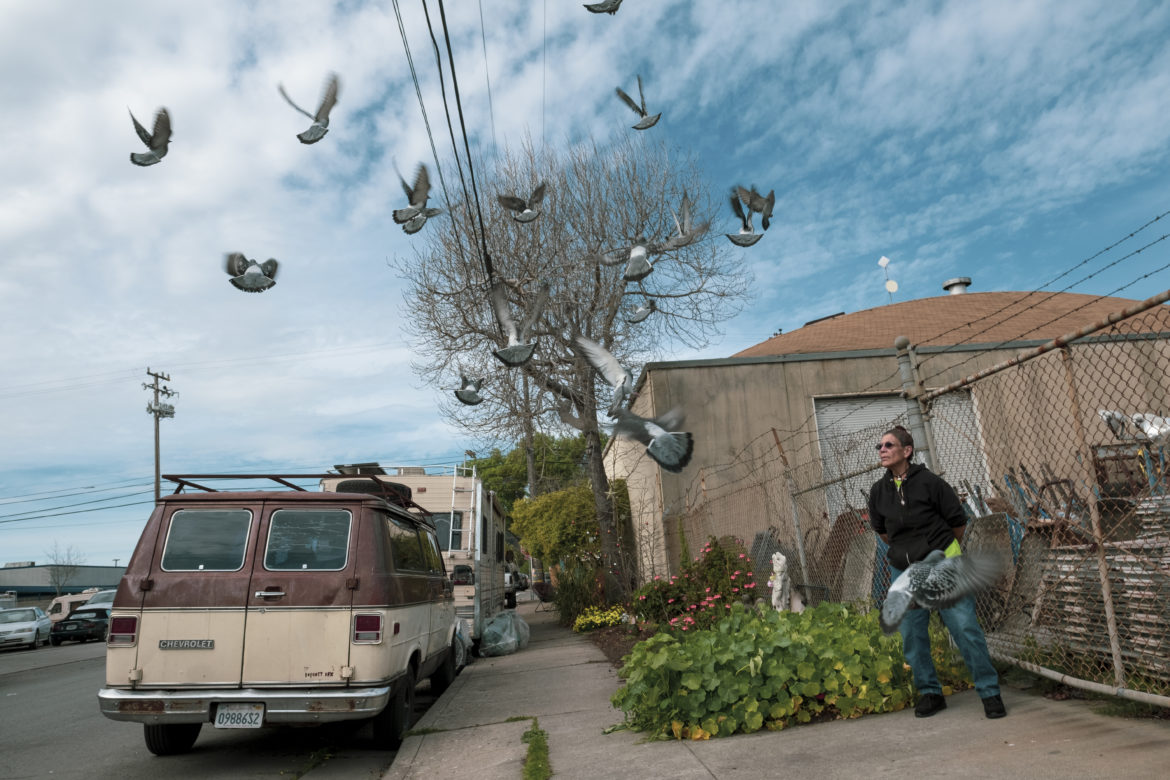
Yesica Prado / San Francisco Public Press and CatchLight Local
Merced Dominguez watches the pigeons fly over her garden on Eighth Street. “Every day, they follow me wherever I go,” said Dominguez, throwing birdseed into the driveway. “All the way to the Dollar Tree and back home. They are just waiting for me to feed them.” Dominguez’s regular routine involves setting out food and water on the driveway for stray animals that visit the block, including a street cat she named Cookie and the dozens of pigeons that show up twice a day.With so much visibility in an area they could not effectively monitor, the vehicle dwellers changed their behavior drastically. They avoided confrontations with outsiders and limited time spent outside. No more grilling together. No more weekly meetings. This made it harder to share information or politically organize. Parents kept kids inside, protecting them from danger and the possibility of being reported to Child Protective Services.
Other, basic things were now difficult too. Without bathrooms and showers, hygiene was a daily puzzle. Without easy access to electricity, some vehicle residents lingered at grocery stores, coffee shops and restaurants for power. Others relied on their vehicle neighbors to charge devices, running extension cords down the street from motorhome to motorhome. A lack of space made daily chores a dilemma.
“It’s difficult, and we are walking all over each other,” Ransbottom said. “You are cooking breakfast and waking the kids up, and getting them dressed all in, like, a five-by-five square. I mean we are all family, but we all have personal bubbles. And I feel like our personal bubbles were being smashed together.”
Because the owners of nearby garbage cans and dumpsters kept them locked, Friends on Wheels had few options for getting rid of refuse. They struggled to keep the area clean, hunting for open trashcans at night.
Vehicle repairs now had to take place quickly, quietly and in the dead of night to avoid detection and citation. Owners lost sleep to finish the work.
They needed potable water for cooking and showering, which was siphoned from the pipes of a nearby grocery store.
A community fades
The group moved to the Gilman District in the summer of 2018, and a year and a half later, its ranks had dwindled to 28 people in about 20 vehicles.
In February, life changed fundamentally for Friends on Wheels and other vehicle dwellers in Berkeley. The City Council enacted regulations against parking large recreational vehicles and campers on public streets between 2 a.m. and 5 a.m. The legislation specified that city staff should focus on enforcement in neighborhoods with large clusters of vehicles and named the Gilman District.
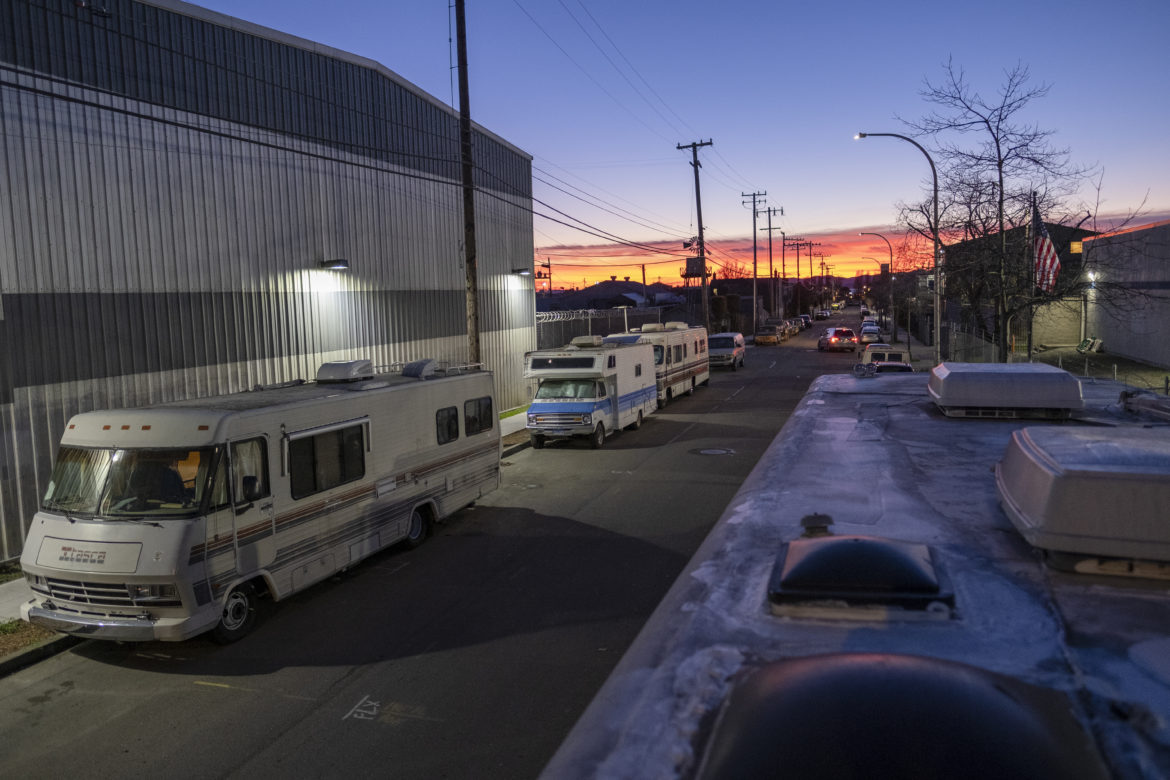
Yesica Prado / San Francisco Public Press and CatchLight Local
Dusk falls on seven vehicular homes at Eighth and Harrison streets in Berkeley’s Gilman District. For over a year, a vehicular community called Friends on Wheels has found refuge at this intersection, living together for safety and companionship. While searching for safe parking spots and the amenities of everyday life, vehicular residents met and banded together at the Berkeley Marina. But as the community of vehicle dwellers grew, their risk of being towed and receiving further citations forced people to leave. Vehicle residents had to find another safe place to settle, and so they found a resting spot on the industrialized streets of West Berkeley.Prior to the restrictions, it was legal to park a recreational vehicle in a single location for up to three days. Tickets could be avoided by moving just a few feet or parking on the opposite side of the street — potentially remaining on the same block indefinitely. Now that was illegal.
The legislation simultaneously began a pilot program to let 25 RV residents park in designated city-owned lots overnight, outside of business hours. RV owners would have to drive away each morning and return at night. Program participants could park overnight for three months before applying to renew their permits for the spaces. Priority went to families, students, people working in Berkeley and those with Berkeley addresses within the past 10 years.
At the council meeting, RV residents posed questions about how this program would help them.
“The third of every month a lot of us have no money,” said Merced Dominguez, a member of Friends on Wheels, during public comment. “And you are going to put us out there to park, then we have to leave overnight and come back the next day. Everyday? It’s not gonna work out. It just adds to the trauma of what we are already going through.”
Dominguez is a pensioner. A lifelong Berkeley resident, in 2014 she lost her home of 56 years in foreclosure to Bank of America. With little savings left, she purchased a recreational vehicle and since then has parked it in the area near Eighth and Harrison streets.
While Dominguez and other RV residents were eligible for parking under the priority criteria, there were not enough spaces to meet the need. Hundreds of Berkeley vehicle dwellers would still have to live in their vehicles on city streets.
In the aftermath of the new legislation, some members of Friends on Wheels traded their RVs for nondescript vans that were too small to be subject to the parking rules and less likely to draw attention. Others departed for potentially more welcoming attitudes in neighboring cities.
By July, city staff in Berkeley had yet to begin enforcing the new overnight parking regulations because they were busy responding to a more urgent crisis: COVID-19. But on July 1, parking patrol resumed enforcement for parking meters, time-limited unmetered spaces, and vehicles parked for more than 72 hours. Once again, vehicle homes can be towed despite a statewide “shelter-in-place” order.
Many unsheltered residents were initially almost unaffected by the coronavirus, unaware of the public health threat and deemed by the city as exempt from the shelter-in-place orders. How do you shelter in place without shelter?
For Friends on Wheels, it was just one more trauma to navigate. They remained on the streets, sheltering in the places available to them, inside their vehicles.
“Home is not necessarily a place with four walls — it’s where your heart is,” Ransbottom said. “It’s where your family is.”
Noah Arroyo contributed reporting to this story.
This story is part of “Driving Home: Surviving the Housing Crisis” and was produced in collaboration with the Bay Area visual storytelling nonprofit CatchLight through its CatchLight Local Initiative. As a CatchLight Local Fellow at the San Francisco Public Press, Yesica Prado examined the culture of vehicle living in San Francisco and Berkeley. Her fellowship work has been featured by the Yerba Buena Center for the Arts and by the Artists Against an #Infodemic Campaign, which aims to improve access to locally relevant public health information. The CatchLight Local Initiative is funded by the Kresge Foundation, The GroundTruth Project, the Facebook Journalism Project, the Neda Nobari Foundation and the Lisa Stone Pritzker Family Foundation.
